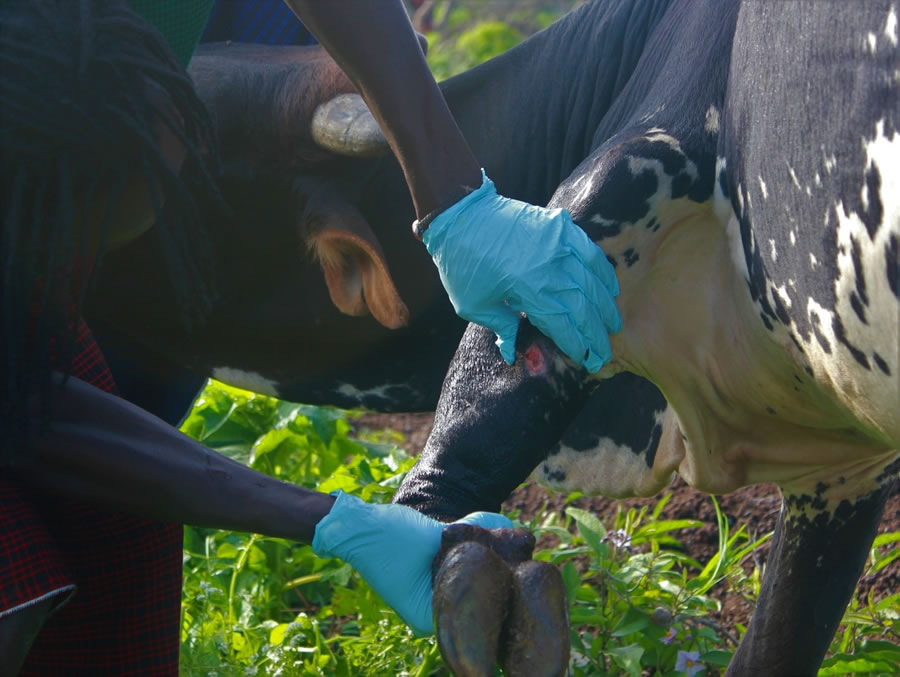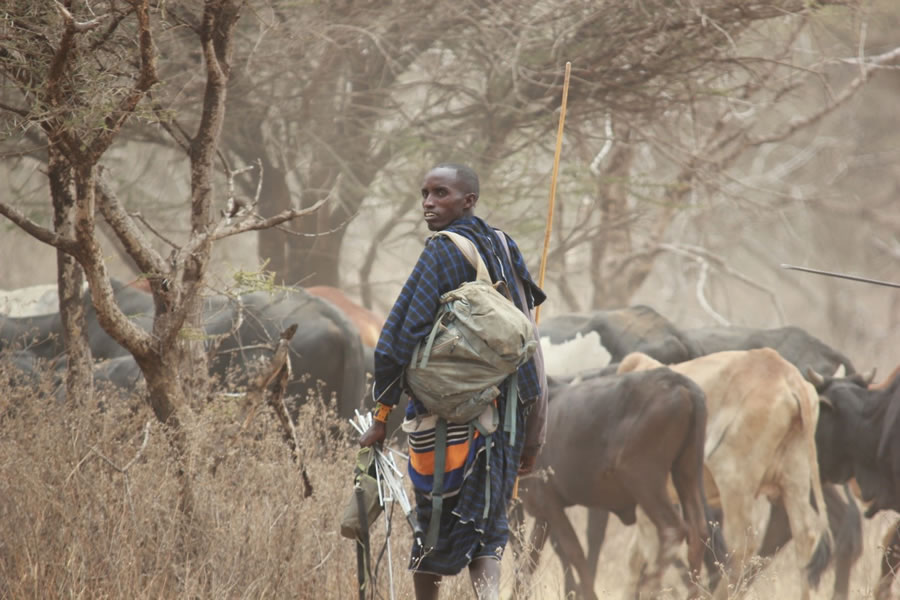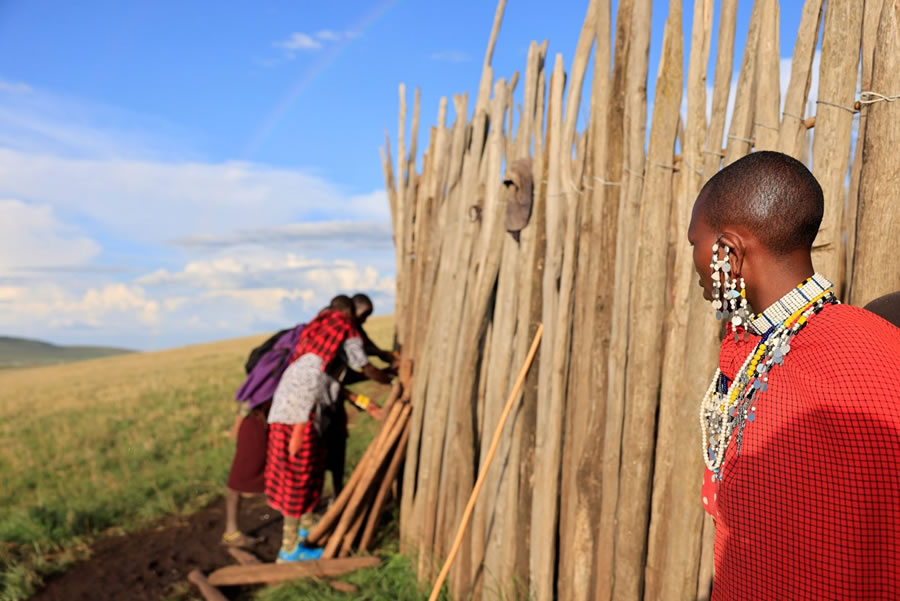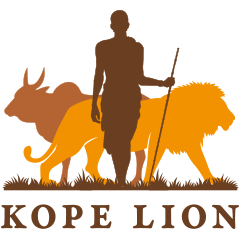Reducing Conflict
KopeLion employs 28 warriors, from the local community, called Ilchokuti (Il-cho-koo-ti), meaning the person who guards the livestock, and in this case the lions too. They prevent conflict events, warning herders about the presence of lions and moving people and livestock out of danger, find and retrieve lost livestock most vulnerable to attack, treat wounded livestock, and use conflict resolution skills to prevent retaliation against lions when depredations of livestock occur.
Wound Treatment
Improving livestock survival from depredation attempts reduces the likelihood of retaliatory hunts and builds relationships with the community. This activity is highly valued by the community who have few resources to access veterinary care for their livestock. The engagement of Ilchokuti with their community following an attempted depredation is crucial to mitigating retaliatory actions and building rapport. Ilchokuti are trained regularly in basic livestock health and husbandry as well as techniques for treating wounds and carry basic veterinary supplies.

Rapaito and Lambarakwo treat a cow attacked by lions
Finding Lost Livestock
Cattle, goats, sheep, and donkeys that stray from the herd while out grazing are vulnerable to carnivore attack, especially if they get lost and remain out during the night. When livestock is attacked or killed by carnivores, angry livestock owners often take retaliatory action. Ilchokuti search for lost livestock when an owner requests for the help, and they also encounter lost livestock opportunistically when out on their usual monitoring and safeguarding in their zones. Finding lost livestock is another pre-emptive mitigation technique, assisting the community by protecting livestock, which are the crux of the pastoralist livelihood.

Ndolok, Ilchokuti Coordinator for Ndutu, returns livestock lost and vulnerable to lion attack.
Reinforcing Livestock enclosures
This assistance is provided to community members following attacks by predators on the boma, or in cases when the boma is weak and prone to predator attacks. KopeLion have received some funding from Asilia Giving together with the Range Wide Conservation Program for Cheetah and African Wild Dogs (RWCP) for involving the gathering of traditional mitigation knowledge (with a focus on improving bomas) and combining this with the conflict toolkit knowledge for dissemination to rangers and communities, and to promote closer working relations between NCAA and the community

Support to repair bomas helps to keep people and livestock safer.
Warning Herders about Lion Presence
Using lions collared with GPS devices by our research partners, is one key method to mitigate conflict. Sharing the lion’s positions from 6am until 10pm with our Ilchokuti allows them to locate the lion on the ground and then ensure that people are safely aware of its presence, move livestock away, and ensure that the lion is protected.
“The Ilchokuti have supported the community and the GPS and collars have helped to identify where the lions are so they can be avoided”
Meshille Village member
The research project currently has permission to collar 8 lions and while it is challenging to secure these candidates and follow them, the rewards it brings is massive to communities.
Sandet finding Nadine’s latest position.
Improving Livestock Enclosures
Keeping people and livestock safer is an essential part of building tolerance, and while attacking livestock enclosures at night is not common behaviour of lions in Ngorongoro, they are just one of a multitude of predators that are nocturnal, opportunistic and will take advantage of an unsecured homestead.
KopeLion work with people who are most at risk, to source ecologically sound materials, to cost share and to build fences that are more secure and allow their owners to sleep safely at night.
Eyes on Cow Butts
Painting a stencil of eyes onto the backsides of cows has the potential to prevent lions from attacking them, thinking that they are being ‘watched’.
Successful in Botswana, this low-cost technique is being trialed in NCA.

Painting eye spots on cattle in the Ngoile area, 2022
